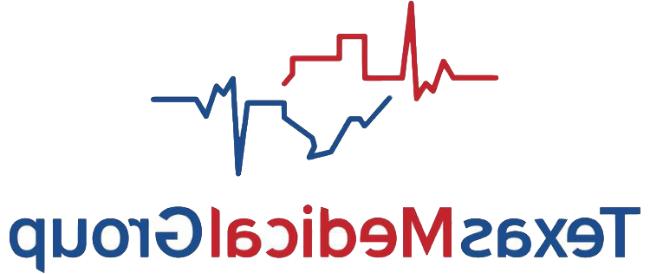
州际和. 州内经验修改评级
经验修正评级(EMR)是工伤保险中一项至关重要的数值指标. 它量化了雇主的工作场所安全和索赔管理绩效,因为它与工人赔偿有关. 该评级直接影响到工伤保险的成本.
根据雇主的经营情况,有两种不同的EMR计算方法——州内和州际. 州际和州内术语是指雇主经营的地理范围. 这一点很重要,因为位置会影响企业EMR的计算和应用方式. 每个EMR的应用取决于业务运行的位置. 如果业务在一个状态中运行,那么将应用内部EMR. 如果企业在多个州开展业务,则应用州际EMR.
This distinction between interstate and intrastate is provided in an EMR worksheet—a comprehensive document that outlines the key components and calculations involved in determining an employer’s experience modification factor.
EMR worksheets are an essential tool for employers to understand their workers’ compensation insurance costs and take measures to improve safety and reduce claims, 最终影响他们的保险费. This article provides an overview of what the experience modification rating is and what the interstate and intrastate experience means in relation to workers’ compensation.
体验修改评分概述
电子病历 quantifies an employer’s historical performance concerning workplace safety and claims management and compares this experience to the expected claims experience for similar-sized companies in the same industry. EMR大于1.00表示索赔情况低于平均水平, 导致更高的保险费, 而EMR低于1.00表示表现好于平均水平,因此保费减少.
这一制度鼓励雇主在安全方面投资, 执行健全的安全计划并有效地管理索赔.
什么是内部经验评级?
An intrastate experience rating refers to the EMR applied to employers conducting business operations exclusively within a single state. 以下是雇主需要了解的美高美集团4688内部经验评级的重要信息:
- 国家行动: Employers considered “intrastate” operate their business activities and employ workers exclusively within a single state. 他们没有跨州的业务.
- 简化的计算: Calculating an EMR for intrastate employers is typically more straightforward compared to those with operations in multiple states. This simplicity arises because these employers are subject to the workers’ compensation laws and regulations of a single state. 一些州遵循国家赔偿保险委员会(NCCI)的评级, 还有一些机构的评级基于独立评级机构. 各州应该使用什么样的评级是由各州法规规定的.
- 关注州特有的法律: Intrastate employers must primarily adhere to the workers’ compensation laws and regulations of their single operating state. 这包括遵守各州特定的安全要求, 报告和索赔管理标准.
- 与国家机构的协调: Intrastate employers work with their state’s workers’ compensation agency and insurance providers to navigate the specific requirements and processes within that state. State agencies are responsible for overseeing workers’ compensation programs and enforcing relevant laws and regulations.
- 对保费的影响就像州际电子病历一样, 企业内部雇主的电子病历影响其工人赔偿保险费. 较低的EMR表明比平均水平更好的安全和索赔管理, 导致保费减少. 更高的EMR意味着更高的风险和更高的保费. 具体由各州完成调整虽然计算EMR的基本原则对州内和州际雇主是相似的, 计算电子病历的具体方法和因素可能因州而异. 每个州可能有自己的规则和公式来确定电子病历.
- 上诉及覆核: Intrastate employers can also request a review or adjustment of their EMR if they believe it has been inaccurately calculated or if they have implemented significant safety improvements that should be reflected in their rating. 这通常涉及到与他们的保险公司和国家工人赔偿机构合作.
Intrastate experience rating applies to employers whose business activities and workforce are confined to a single state. 电子病历 for intrastate employers is determined based on the specific workers’ compensation laws and regulations of that state, 它在决定他们的工伤保险费用中起着举足轻重的作用.
Properly managing workers’ compensation within a single state involves compliance with state-specific requirements and regulations, and employers may need to collaborate closely with state agencies and insurance providers to ensure compliance and fair rating.
什么是州际体验评级?
An interstate experience rating refers to the EMR applied to employers who conduct business operations in multiple states within the United States. 这是一种专门的方法,用于计算跨州运营时雇主的EMR. 以下是州际体验评级的重要之处:
- 多态的操作: Employers considered “interstate” have business operations and employees in more than one state within the United States. These employers conduct their activities across state borders and are subject to the workers’ compensation laws and regulations of multiple states.
- 复杂的计算: Calculating an EMR for an interstate employer can be more complex than for those with operations limited to a single state. 这种复杂性源于工人赔偿规则的不同, 州与州之间的税率和法规.
- 州际运营调整: The interstate experience rating process typically involves adjustments to account for the multistate nature of the employer’s business. This adjustment considers the unique regulatory environments and claims experience in each state where the employer operates.
- 遵守多个州的法律: Interstate employers must ensure compliance with the workers’ compensation laws and regulations of each state where they conduct business. 这可能包括满足报告要求, 确保覆盖每个州, 并遵守国家特定的安全和索赔管理标准.
- 与保险公司的协调: Employers with operations in multiple states often work closely with their insurance providers to navigate the complexities of interstate workers’ compensation insurance. Insurance companies experienced in interstate operations can help ensure compliance and provide guidance on managing claims across state lines.
- 检讨及调整就像州内电子病历一样, interstate employers can request a review or adjustment of their EMR if they believe it has been inaccurately calculated or if they have implemented significant safety improvements that should be reflected in their rating.
Interstate experience rating applies to employers with business operations spanning multiple states within the United States. It takes into account the challenges and differences in workers’ compensation regulations and claims experiences across state lines to determine a fair and accurate EMR for these employers.
结论
州际和州内经验评级系统在工人赔偿保险中都起着至关重要的作用, 反映雇主经营活动的地域范围.
Both rating systems share a common goal: To determine an EMR that accurately reflects an employer’s safety practices and claims history.
了解这些评级系统之间的区别对雇主来说至关重要. 其目的是促进更安全的工作场所, 公平的保险定价并遵守各州具体的工人赔偿法律.
This 工作对比 is not intended to be exhaustive nor should any discussion or opinions be construed as legal advice. 读者应联系法律顾问或保险专业人士以获得适当的建议. ©2023 Zywave, Inc. 版权所有.

讨论
目前还没有评论.